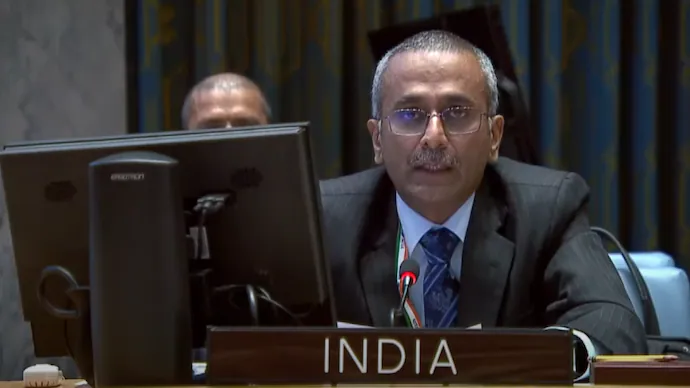Addressing the United Nations Security Council (UNSC) meeting on the ongoing Russia-Ukraine conflict, Indian Ambassador R Ravindra said that India’s approach towards the crisis would continue to be people-centric. Iterating that New Delhi has been providing assistance to Kyiv, the deputy permanent representative to the UN stated that military offensives in Ukraine have resulted in the loss of lives and countless miseries, especially for women, children and the elderly.
He said that India would continue to support countries which are affected by the hike in fuel, food and fertilizer prices.
‘India continues to remain concerned over the situation in Ukraine, ” the ambassador said.
“India’s approach to the Ukraine conflict will continue to be people-centric. We are providing both humanitarian assistance to Ukraine and economic support to some of our neighbours in the Global South under economic distress even as they stare at the escalating costs of food, fuel and fertilizers which has been a consequential fallout of the ongoing conflict,” the deputy permanent representative said.
RUSSIA-UKRAINE WAR
Russian President Vladimir Putin, on the pretext of a ‘special military operation’, ordered Kremlin forces to carry out strikes in Ukraine. On February 24, 2022, Russian forces launched a full-fledged attack on Kyiv while Ukrainians remained determined to save their territory from invasion. Undeterred and seemingly enraged, Ukranian President Volodymyr Zelenskyy had urged his countrymen not to exit the war-struck nation, stay back and fight foreign forces.
On the other hand, Putin continued the military offensives and dubbed the invasion as Russia’s objective to put Kyiv’s ‘military infrastructure out of operation’. At present, Russia’s attack on Ukraine continues with no breakthrough in the ceasefire agreement in sight.
In September, Putin, in a televised event, declared the Luhansk, Donetsk, Kherson and Zaporizhzhia regions as formal parts of Russia, representing around 15% of Ukrainian territory.
Meanwhile, PM Narendra Modi has repeatedly held discussions with Putin, urging the Russian side to de-escalate its military engagements in Kyiv and return to dialogue with Zelenskyy. Also, during the inception of the war, India’s prime concern was to safely bring back over 20,000 Indian civilians residing in Ukraine. India drew flak for not imposing sanctions on Russia, like other countries, particularly the West, did.
However, in a conversation with the media, Indian foreign affairs minister S Jaishankar said that despite heavy sanctions on Russia, India was importing perhaps 2 per cent of the oil that European countries were buying from Moscow.
“Let’s be a little even-handed,” Jaishankar had said at the 9th India- Thailand Joint Commission Meeting when asked whether India’s purchase of oil was funding the war.
Speculation about India’s complacency amid a war was rife when the foreign affairs minister put criticisms in place.

